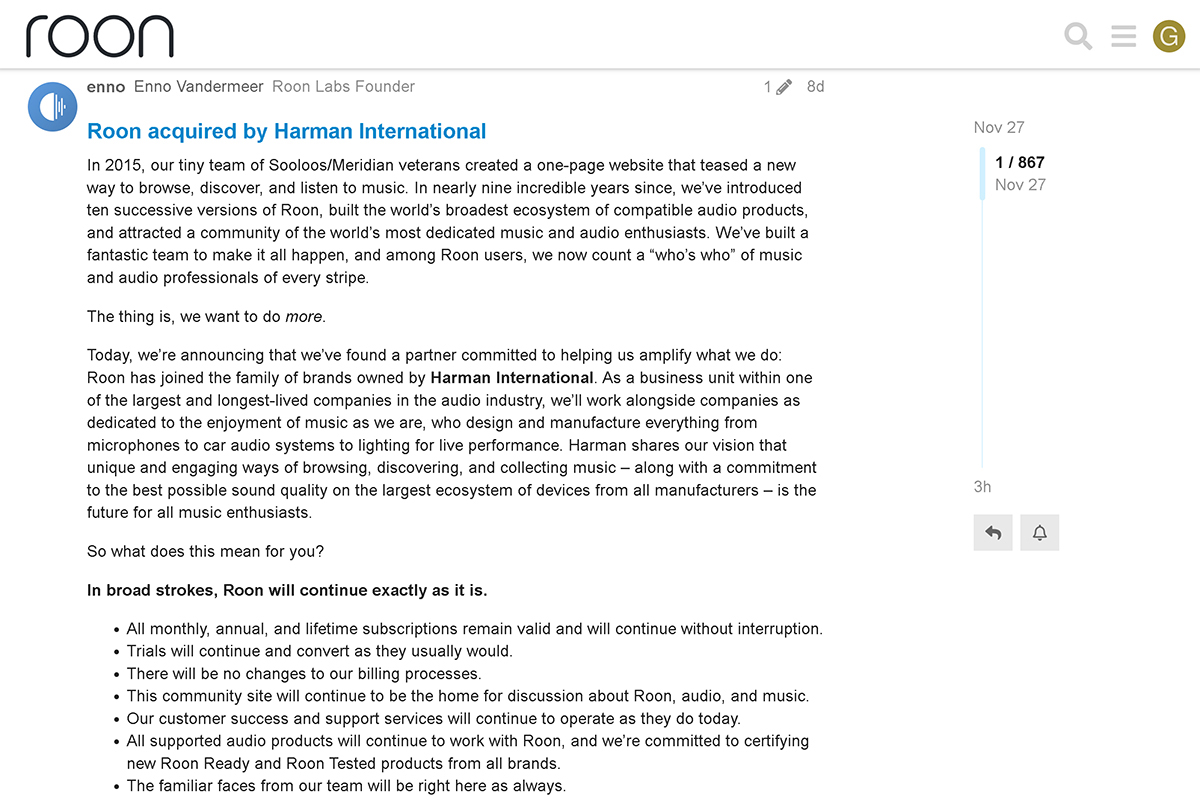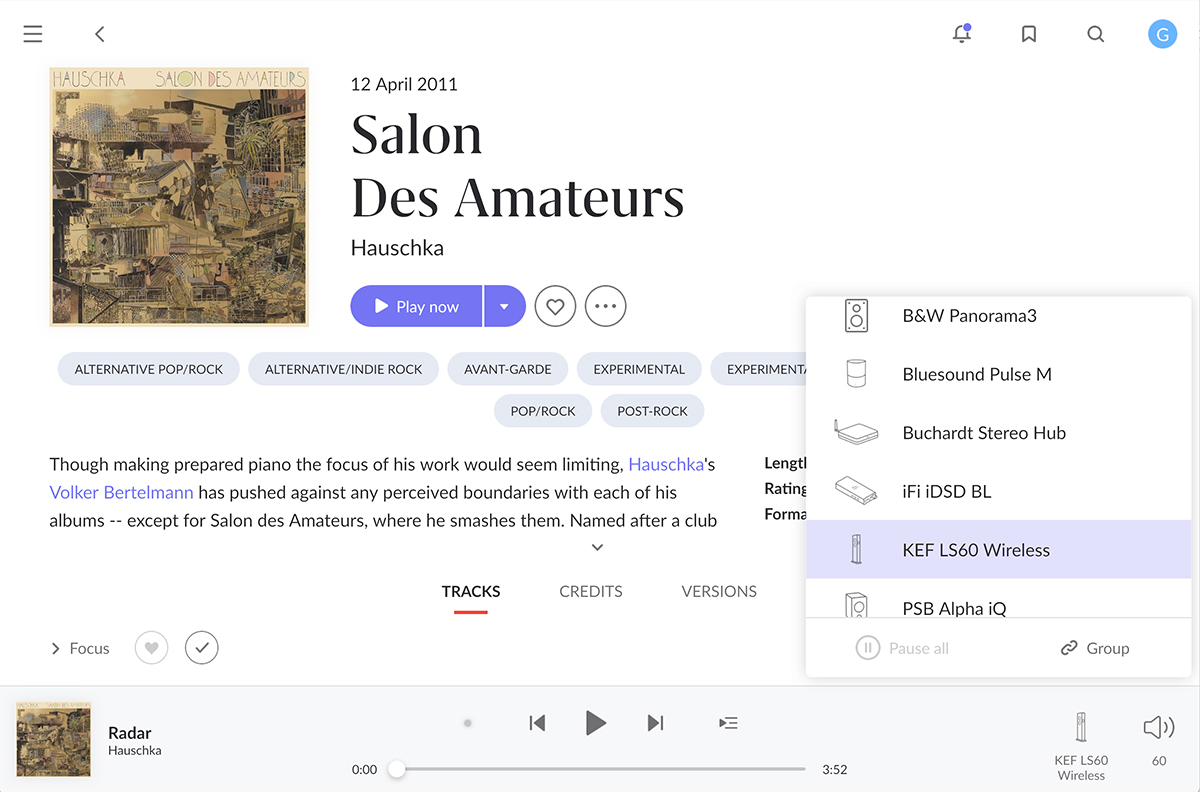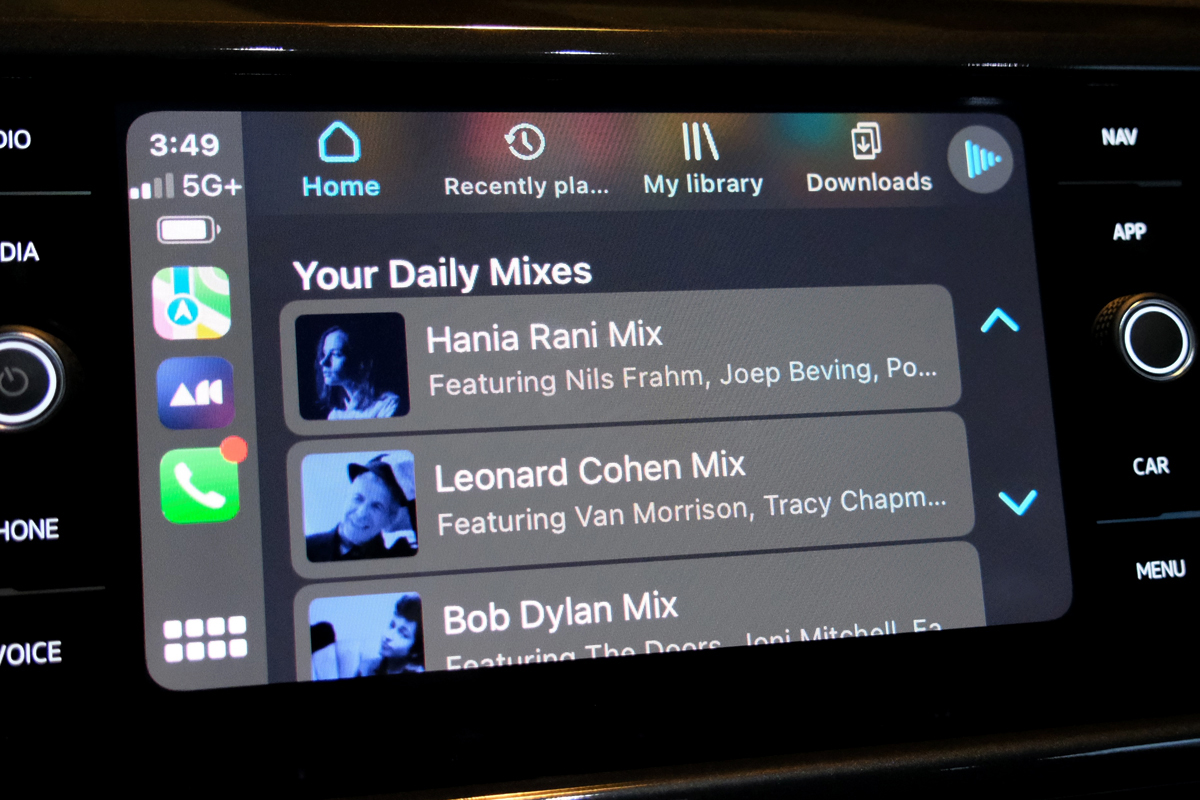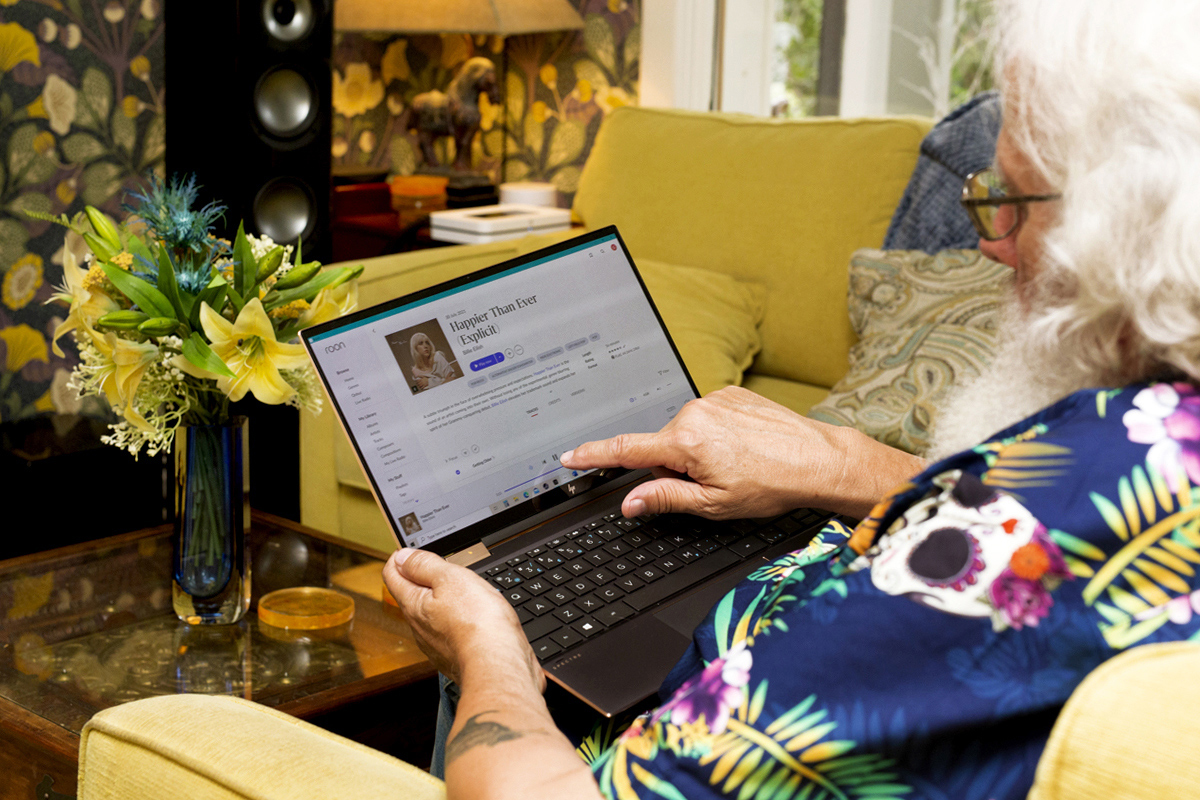Harman International Industries, as many readers know, owns several highly regarded home-audio brands: AKG, Arcam, Harman Kardon, JBL, Lexicon, Mark Levinson, and Revel, among others. Fewer know that Harman is also involved in pro audio and automotive electronics. On November 27, Harman announced a further expansion to its ambit with the acquisition of Roon Labs, a move that caught almost everyone in the hi-fi world by surprise, including me. Harman itself was acquired by Samsung Electronics in 2017 and operates as an autonomous subsidiary of the South Korean giant.
Roon Labs is the developer of the popular Roon music-management software, a robust application that can play locally stored or streamed music through different devices over a home network. In 2021, Roon added an enhancement, Roon ARC, that lets Roon users access their music libraries remotely, over the internet. Roon Labs licenses its software on a subscription basis: $14.99 per month (all prices in USD), $149.88 annually, or $829.99 for a lifetime subscription. As I noted in a recent feature, “Roon isn’t cheap, but for serious digital audiophiles, it’s worth it.”
Steady as she goes
In its announcement of the acquisition, Harman affirmed that Roon would operate as a standalone business and retain its existing team, but despite this assurance, a lively discussion ensued on the Roon Community forum and others. One question that was often raised was whether Roon’s lifetime subscriptions would be honored. They will indeed. Harman took over Roon in its entirety—intellectual property, assets, debts, and obligations.

Roon cofounder Enno Vandermeer was quick to dispel any doubt on the matter: “In broad strokes, Roon will continue exactly as it is,” he stated in a post on the Roon Community forum soon after the announcement. “All monthly, annual, and lifetime subscriptions remain valid and will continue without interruption. Trials will continue and convert as they usually would. There will be no changes to our billing processes. . . . All supported audio products will continue to work with Roon, and we’re committed to certifying new Roon Ready and Roon Tested products from all brands.”
So Roon’s users don’t have to fret about Roon’s acquisition, but what about its hardware partners? Rob Darling, director of partnerships for Roon Labs, talked about that when I interviewed him in 2019. Roon provides its hardware partners with a software development kit that allows them to enable their streaming devices to communicate and work in concert with the Roon Server and apps. This interoperability goes well beyond the streaming of music. Roon Ready devices must be able to make hardware functions—volume control, track skipping, DSP adjustment, etc.—accessible and operable in the Roon app. And when changes are made through hardware controls, they must be reflected in the Roon app.

“Those customizations are the hard work our hardware partners do to make their products Roon Ready,” Darling told me. “We ask them to do all of this because we want our customer to feel like their device is an extension of Roon and Roon an extension of their device.” This integration is tweaked to perfection through a rigorous, collaborative certification process that concludes with extensive quality-assurance testing. Roon Ready prototypes may undergo several rounds of modifications before they attain certification. Roon retains a sample of each Roon Ready device to facilitate customer support.
When I heard about Roon’s acquisition, I wondered how audio manufacturers would feel about sharing product information and providing samples, now that Roon is owned by a potential competitor. I posed this question to a few manufacturers. One replied that their dealings with Roon are covered by a non-disclosure agreement and would not comment further. I could appreciate that. I would also expect that Roon, likewise, is bound by confidentiality agreements that bar it from disclosing information about its hardware partners to other entities—including its new parent company. A senior executive at another manufacturer, however, said he was unaware of any non-disclosure agreement between his company and Roon. But I am sure there are safeguards in place, whatever their form, to protect the interests of hardware partners. Trust is key to the Roon Ready program.
For now, it’s steady as she goes for Roon subscribers and Roon’s hardware partners. As to the long term, who knows? Things do change, typically, in the wake of such acquisitions, and the transition is not always smooth. Samsung and Harman may have their own ideas on how Roon should operate within their corporate ecosystem, and some Roon employees may chafe at any restructuring and new rules.
The prize
The terms of the acquisition were not disclosed, but it’s a safe bet that Roon’s founders were handsomely rewarded for their creativity and hard work. And what did Harman and Samsung get from the deal? A whole lot: a viable business with a respected brand—plus a ton of valuable intellectual property:
- A proprietary software protocol, RAAT (Roon Advanced Audio Transport), for playing audio through connected and networked devices. (RAAT supports hi-rez audio up to 32-bit/768kHz PCM and DSD512. It sends audio and control from the Roon Server to the playback device(s), and it sends control inputs and settings from playback devices to the Roon app so that everything operates seamlessly.)
- A proven, effective quality-assurance program. Over 1000 devices have received Roon Ready certification. As noted above, each of these products has been through a rigorous testing process.
- An unrivaled user experience. Roon lets users integrate their personal music library with their favorites from any of the Roon-supported streaming services (Qobuz, Tidal, and KKBox) they subscribe to. Roon is powerful, endlessly customizable, yet easy to navigate. It incorporates rich editorial content like album reviews and artist bios.
- A cross-platform suite of apps: the Roon Server, which runs as a background process that manages the user’s music library and audio devices (Windows, macOS, Linux, RoonOS); the Roon app (Windows and macOS) and Roon Remote (iOS and Android), which control the Roon Server and are used for browsing the library, adjusting settings, and managing playback; and Roon ARC, which is used to connect to the Roon Server remotely, as mentioned (iOS and Android; supports Apple CarPlay and Android Auto). Users can experience Roon on desktop computers, laptops (conventional and convertible, with support for touch), smartphones, tablets, and even car infotainment systems.
Currently, Harman offers a rudimentary app called MusicLife that works with select Arcam, JBL, and Mark Levinson products. If Harman were to develop streaming apps for its home-audio products that incorporate key aspects of Roon, it could gain a major competitive advantage over streaming products from other brands. This may well have been the rationale behind Roon’s acquisition.

I’m sure Harman will be happy to let Roon operate as it always has; it will just have access to more resources. Vandermeer alluded to that in a Roon Community post: “Succeeding as a young company is a constant quest to balance serving the needs of customers with keeping the lights on and bringing on talented people to augment the team,” he wrote. “In our new position under the Harman umbrella, we can lean into our vision without the frayed nerves.”
But I also think Roon’s technology will find its way into many Harman and Samsung products—not just stereo components, but TVs, home theaters, and car infotainment systems as well. Imagine a Samsung TV with an Atmos soundbar, running a Roon-inspired app that streams surround music. Imagine the same thing in a JBL Synthesis home theater or a car infotainment system. These and other tantalizing applications of Roon technology may be in the offing. It will be interesting to see where Harman goes with Roon.
. . . Gordon Brockhouse




